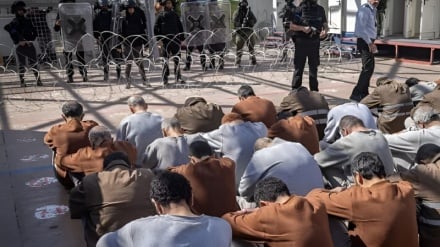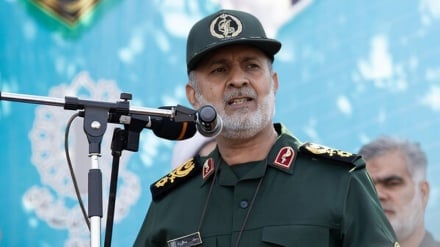Are Egypt and Israel heading towards an open confrontation?
-

Are Egypt and Israel heading towards an open confrontation?
Pars Today - Egypt's tone towards Israel has recently changed significantly, raising the question of whether this indicates the possibility of an open confrontation between the two sides or not.
In the emergency meeting of Arab-Islamic countries in Doha on September 15, held in response to Israel's attack on the Hamas leaders, Egyptian President Abdel Fattah al-Sisi referred to Israel as the "enemy" for the first time. According to Pars Today, this unprecedented escalation of tensions, which came in response to the latest military moves by the Israeli regime in Gaza and the region, poses a threat to the existing peace treaty between Cairo and Tel Aviv.
Some media and analysts have warned that the continuation of this trend could lead to a potential military confrontation.
Reasons for the shift in position
Cairo's restraint, which had chosen the path of diplomacy after Hamas's October 7 attack on Israel, changed significantly following the Zionist regime's attack on Doha; an attack that prompted Sisi and the Emir of Qatar to call for the formation of a "united front" to protect the national security of Arab countries.
Egypt's change in tone became more apparent after the Israeli army announced the start of a ground assault on Gaza City on the afternoon of September 15, issuing evacuation orders that displaced hundreds of thousands of Palestinian civilians to southern Gaza.
A few days before this attack, Israeli Prime Minister Benjamin Netanyahu emphasized the need to relocate Palestinians from Gaza and accused Egypt of "holding residents of Gaza who want to leave the war zone there against their will." This event also followed Netanyahu's statements regarding the vision of a "Greater Israel."
Signs of escalating tensions
The Egyptian president's reference to Israel as the "enemy" at the Doha meeting is seen as an important sign of escalating tensions and indicates the end of Cairo's patience with Tel Aviv's violations. Following the attack on Doha, it was reported that Egypt, through the United States, warned Israel that targeting Hamas leaders on Egyptian soil would have "disastrous consequences."
Potential for military confrontation
The most significant manifestation of this tension is the deployment of Egyptian military forces in the Sinai Peninsula. Last March, Israeli officials warned about the "militarization" of Sinai, describing it as a violation of the 1979 peace treaty.
A report from the "Axios" website, citing informed sources, stated that Netanyahu had asked the US to pressure Egypt to reduce its military presence in the Sinai Peninsula. However, Cairo insists that this presence is for "securing the borders against all threats."
Ahmed Youssef, a professor of political science, believes that "in the event of any Israeli attack, Egypt will be forced to defend itself."
Regional consequences
The escalating tension between Egypt and Israel could have widespread regional consequences, including the formation of new political, military, and defense alliances.
Simultaneously, Egypt has sent messages indicating that it is seeking to find allies and build new alliances. Cairo has also intensified its diplomatic efforts to address Israel's invasion of Gaza City and has held talks with Iran, Saudi Arabia, and Qatar.


